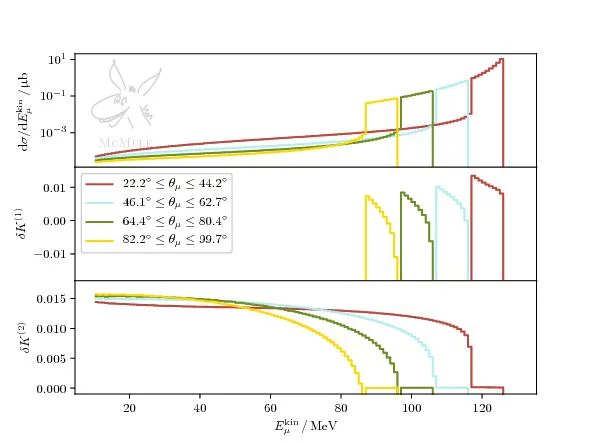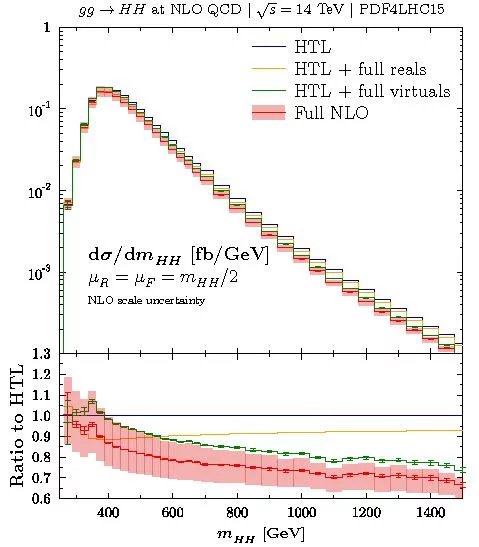The PSI Theory Group of Particle Physics mainly works on projects of particle physics at PSI and CERN.
Related to high-energy processes, our group has a long tradition of providing public codes for various SM and MSSM Higgs boson and supersymmetric particle production and decay processes at hadron colliders, such as e.g. Hdecay, Higlu or Prospino, see http://tiger.web.psi.ch/proglist.html. Recent activities focus on Higgs-pair production through the gluon-fusion mechanism gg → HH, where the Higgs bosons couple to the gluons via a virtual top-quark loop. For a reliable prediction of the corresponding production cross section the full radiative corrections at next-to-leading order in perturbation theory are required supplemented by a rigorous estimate of the related theoretical uncertainties. Our group has computed the full next-to-leading-order corrections with novel numerical methods and the uncertainties have been extended by uncertainties originating from the treatment of the virtual top-quark mass. These uncertainties turn out to be significant and will be included in the theoretical predictions for future analyses at the LHC. The results will have a significant impact on the size of the error bars of these future measurements at the high-luminosity LHC and thus the room left for New Physics beyond the Standard Model. Higgs-pair production will be the first direct measurement of the mexican-hat shape of the Higgs potential.
Related to low-energy processes, our group is working on renormalisation-group improved interpretations of lepton-flavour violating processes within an effective field theory approach. In addition we have set up McMule (Monte Carlo for MUons and other LEptons), a generic framework for higher-order QED calculations of scattering and decay processes involving leptons. The aim is to apply modern techniques typically used in connection with computations of high-energy processes and close a notable gap in the theory support for low-energy processes. This framework properly treats mass effects and infrared singularities when combining loop amplitudes. It allows to obtain fully differential cross sections at any order in QED perturbation theory with massive fermions, as long as the matrix elements are known. For the latter, input is also taken from OpenLoops. The codes are public and the current versions are available at https://gitlab.com/mule-tools/mcmule and https://gitlab.com/openloops/OpenLoops. Several processes have been and will be implemented at next-to-next-to-leading order in QED. For lepton-proton scattering and electron-positron annihilation into photons, also non-trivial hadronic contributions will be investigated.



